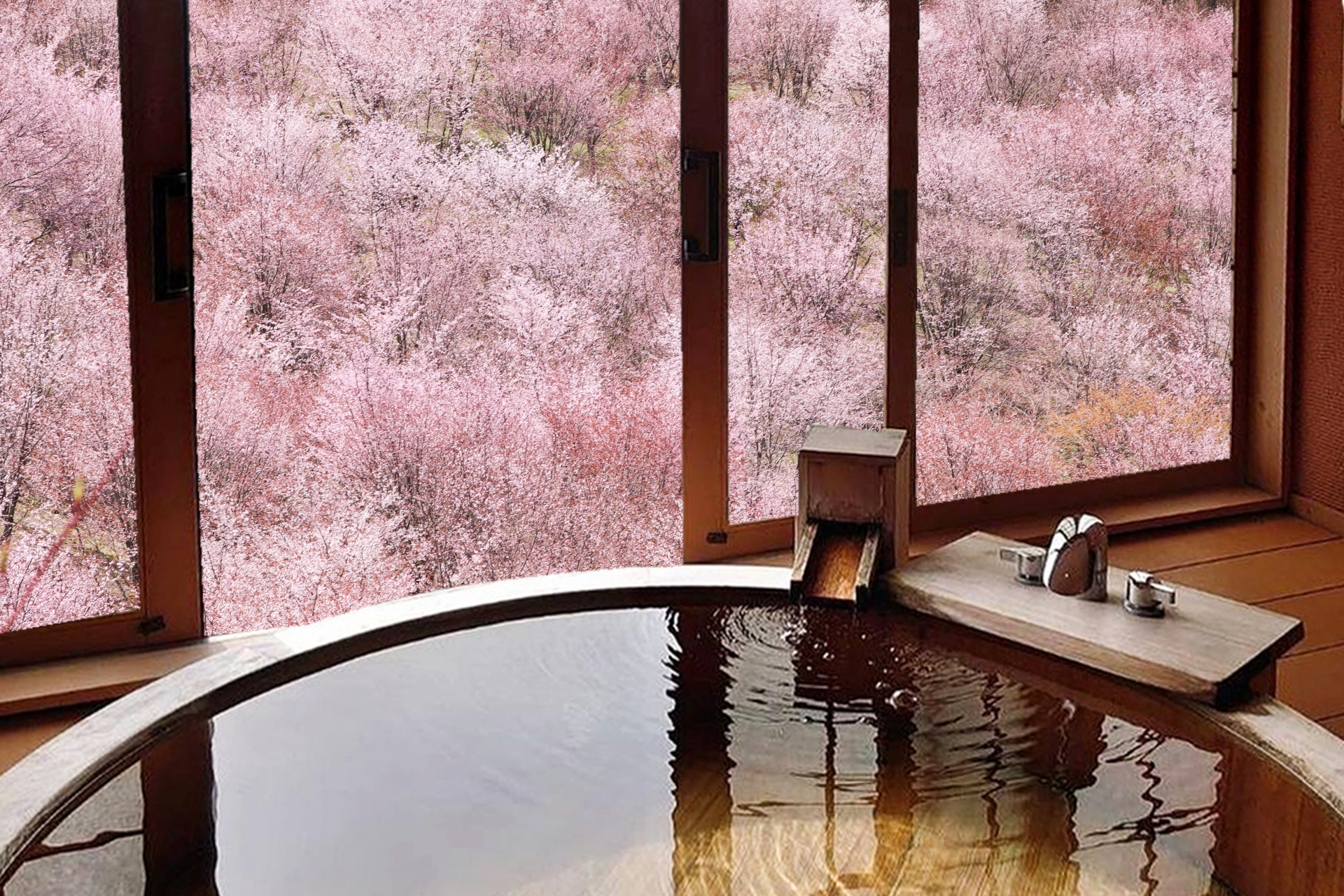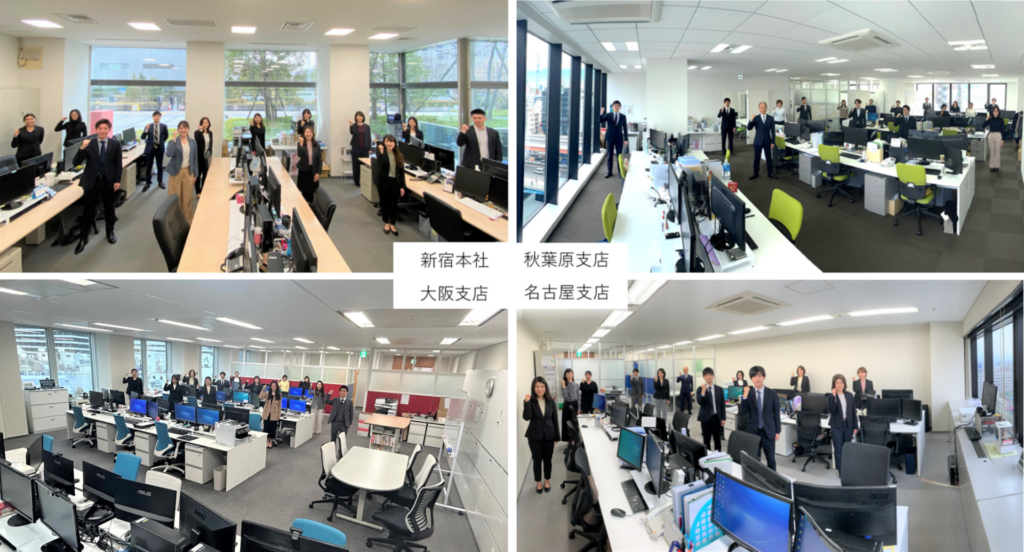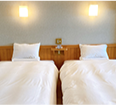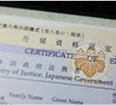Areas Where Ryokan and Hotel Operations Are Permitted
更新日:2025年4月7日
Under the City Planning Act, urban areas in Japan are classified into various zones—such as residential, commercial, and industrial districts—known as zoning areas (Yoto Chiiki).
Depending on the zoning designation, ryokan and hotel operations may be restricted in certain areas.
Therefore, it is important to check the zoning classification before proceeding.

◆もくじ◆
Location of Accommodation Facilities (Zoning Area Designation)
| Ryokan Operation Allowed? | Zoning Area | Description |
| × | Category I Low-Rise Exclusive Residential Zone | Designed for low-rise residential housing. Allows homes with small shops or offices, as well as elementary and junior high schools. |
| × | Category II Low-Rise Exclusive Residential Zone | Primarily for low-rise housing. In addition to schools, small shops up to 150 m² are permitted. |
| × | Category I Mid/High-Rise Exclusive Residential Zone | Designed for mid/high-rise housing. Allows hospitals, universities, and certain shops up to 500 m². |
| × | Category II Mid/High-Rise Exclusive Residential Zone | Primarily for mid/high-rise housing. Allows hospitals, universities, and necessary facilities such as shops or offices up to 1,500 m². |
| 〇 | Category I Residential Zone | Aims to protect the residential environment. Allows hotels, offices, and shops up to 3,000 m². |
| 〇 | Category II Residential Zone | Primarily protects the residential environment. Allows hotels, offices, shops, and karaoke boxes. |
| 〇 | Quasi-Residential Zone | Designed to accommodate automobile-related facilities along roads while maintaining a compatible residential environment. |
| 〇 | Neighborhood Commercial Zone | Intended for local shopping and daily needs. Allows housing, shops, and small factories. |
| 〇 | Commercial Zone | An area with banks, cinemas, restaurants, department stores, etc. Also allows housing and small factories. |
| 〇 | Quasi-Industrial Zone | Primarily for light industries and service facilities. Most types of buildings are allowed except for highly hazardous or polluting factories. |
| × | Industrial Zone | Suitable for all types of factories. While homes and shops are permitted, schools, hospitals, and hotels are not allowed. |
| × | Exclusive Industrial Zone | Dedicated industrial zone. Any type of factory is allowed, but homes, shops, schools, hospitals, and hotels are prohibited. |
Surrounding Facilities of Accommodation Establishments (Article 3, Paragraph 3 Facilities)
If a ryokan or similar accommodation is located within about 100 meters of certain public facilities, and it is judged that the presence of the hotel could seriously harm the environment of those facilities, then a hotel business permit cannot be issued.
| 【Schools under Article 1 of the School Education Act (excluding universities)】 |
| Kindergartens, elementary schools, junior high schools, high schools, combined secondary schools, special needs schools, and technical colleges |
| 【Child welfare facilities under Article 7 of the Child Welfare Act】 |
| Maternity homes, infant care centers, mother and child support facilities, daycare centers, children’s centers, children’s homes, facilities for children with intellectual or physical disabilities, facilities for deafblind children, facilities for children with severe multiple disabilities, short-term treatment homes for emotionally disturbed children, child self-reliance support centers, and child and family support centers |
| 【Other educational or public facilities set by local ordinances】 |
| Libraries, community centers, city parks, museums, sports facilities, etc. |
However, being within 100 meters of these facilities does not automatically mean you cannot get a permit.
If the hotel has structures that block the view of guest rooms, dance halls, amusement spaces, or similar areas from those nearby facilities, there is still a chance that the hotel business permit may be approved.
Facility Requirements for Accommodation Businesses
To receive a hotel business permit, the building must meet the structural and facility standards set by the Hotel Business Act and local government regulations.
The standards vary depending on the type of operation: Hotel, Ryokan, Guesthouse, or Lodging House.
Facility Requirements for Hotel Operation
| ① | Must have at least 10 guest rooms, mainly in Western style. |
| ② | Guest rooms with Western-style facilities must meet the following: Each room must be at least 9㎡ in floor area Beds must be Western-style Doors and windows must be lockable Walls must separate the room from other rooms and hallways (excluding doors and windows) |
| ③ | For Japanese-style rooms, each must be at least 7㎡. |
| ④ | Must have a front desk or similar facility for face-to-face check-in. |
| ⑤ | Must be equipped with proper ventilation, natural light, lighting, humidity control, and drainage. |
| ⑥ | Must have a suitable number of Western-style baths or shower rooms to meet guest needs. |
| ⑦ | Must have washbasins of suitable size to meet guest needs. |
| ⑧ | Must have heating equipment appropriate for the size of the facility. |
| ⑨ | Toilets must be flush-type and include Western-style seating. If shared, there must be separate toilets for men and women. |
| ⑩ | Must meet any other facility standards set by prefectures or designated cities with public health centers. |
Facility Requirements for Ryokan Operation
| ① | Must have at least 5 guest rooms, mainly in Japanese style. |
| ② | Each Japanese-style guest room must be at least 7㎡ in floor area. |
| ③ | Western-style guest rooms must meet the following: Each room must be at least 9㎡ Beds must be Western-style Doors and windows must be lockable Walls must separate the room from other rooms and hallways (except for doors and windows) |
| ④ | Must have a front desk or similar facility for face-to-face interaction with guests. |
| ⑤ | Must have proper ventilation, lighting, moisture control, drainage, and natural light. |
| ⑥ | Unless there is a nearby public bath that guests can use, the facility must have suitable bathing equipment to meet guest needs. |
| ⑦ | Must have washbasins of appropriate size to meet guest needs. |
| ⑧ | Must have an adequate number of toilets. |
| ⑨ | Must meet any other structural requirements set by the prefectural government. |
Facility Requirements for Guesthouse Operation
| ① | The total floor area of guest rooms must be at least 33㎡. |
| ② | If using bunk beds, the space between upper and lower beds must be about 1 meter or more. |
| ③ | Must have proper ventilation, lighting, moisture control, drainage, and natural light. |
| ④ | Unless there is a nearby public bath that guests can use, the facility must have bathing equipment large enough to meet guest needs. |
| ⑤ | Must have washbasins of appropriate size to meet guest needs. |
| ⑥ | Must have an adequate number of toilets. |
| ⑦ | Must meet any other structural requirements set by the prefectural government. |
Facility Requirements for Lodging House Operation
| ① | Must have proper ventilation, lighting, moisture control, drainage, and natural light. |
| ② | Unless there is a nearby public bath that guests can use, the facility must have bathing equipment large enough to meet guest needs. |
| ③ | Must have washbasins of appropriate size to meet guest needs. |
| ④ | Must have an adequate number of toilets. |
| ⑤ | Must meet any other structural requirements set by the prefectural government. |
For Hotel Business Permit Applications,
Contact SG Administrative Legal Services
At SG Administrative Legal Services, we support both new entrants to the hotel and ryokan industry, as well as existing operators, by assisting with hotel business permit applications and providing expert consulting services.
Hotel business permits are handled by local public health centers, and each center may have its own local rules and procedures.
Our team has experience submitting applications throughout all prefectures in Japan.
Please feel free to contact us for a consultation.
Example of Support Provided
【Major Foreign Hotel Chain Entering Japan for the First Time】
This project involved a hotel operator entering the Japanese market for the first time.
Some operational practices that were permitted in their home country could not be applied under Japanese laws and local regulations.
After carefully listening to the client’s preferred hotel style, we proposed suitable building designs and operational methods.
As a result, the hotel successfully opened its first location in Japan.
Since our team can handle multilingual communication, we also coordinated with the local subsidiary in English.
Permits and Notifications Obtained
Hotel Business Permit/Restaurant Business Permits (3)/Late-Night Alcohol-Serving Restaurant Notification/Public Bathhouse Permit Application/Swimming Pool Operation Notification/Laundry Service Notification/General Alcohol Retail License
Location
Kyoto
【Luxury City Hotel】
This large-scale hotel had multiple departments—such as accommodation, dining, spa, and fire safety—each managed by different teams.
In addition to preparing for permit applications, each department also had to continue its core tasks, such as staff training and menu development.
By joining the hotel’s opening team, our firm became the single point of contact with government authorities for all permits.
This allowed each department to stay focused on their work while we efficiently handled all licensing procedures.
Permits and Notifications Obtained
Hotel Business Permit/Restaurant Business Permits (7)/Late-Night Alcohol-Serving Restaurant Notifications (2)/Public Bathhouse Permit Application/Swimming Pool Operation Notification/Laundry Service Notification
Location
Osaka
【Large Resort Hotel】
This project was delayed due to typhoons and other factors, which pushed back the original construction schedule.
However, the planned opening date could not be changed.
Despite the tight timeline, we carefully scheduled the application submissions and on-site inspections.
As a result, the hotel successfully opened on the originally planned date.
Permits and Notifications Obtained
Hotel Business Permit/Restaurant Business Permits (3)/Late-Night Alcohol-Serving Restaurant Notification/Public Bathhouse Permit Application/Swimming Pool Operation Notification/Laundry Service Notification/General Alcohol Retail License
Location
Okinawa
【Fully Unmanned Hotel】
This project involved a client who wanted to operate a completely unmanned hotel in response to rising labor costs.
While in-person check-in is typically required, we reviewed and applied the relevant regulatory exemptions.
By incorporating these rules into the hotel’s design and operations, we helped make a low-labor operation possible.
Permits and Notifications Obtained
Hotel Business Permit/Restaurant Business Permit
Location
Ise City





